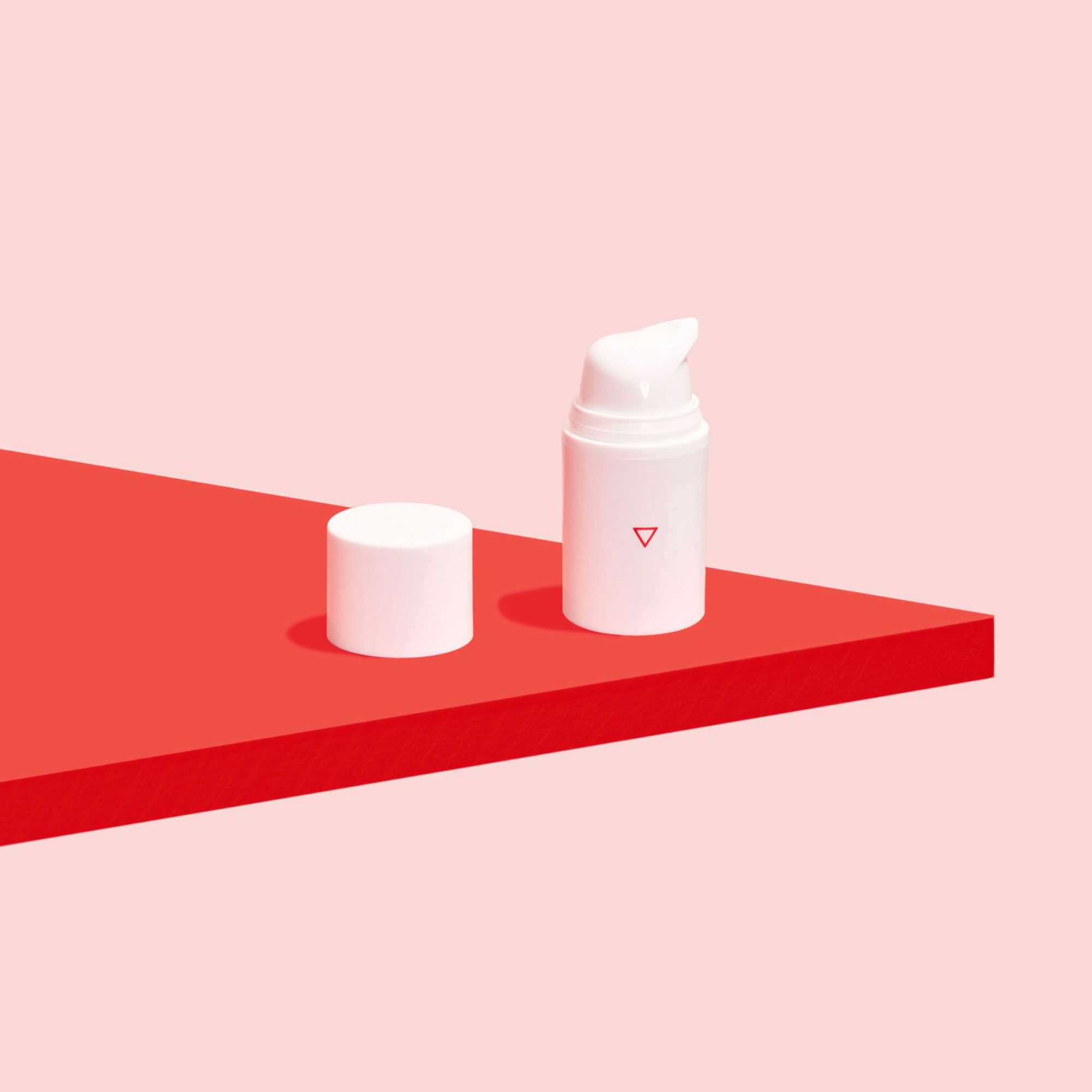
HSV 1 vs HSV 2:
What’s the Difference, Really?
Published on May 1, 2022
Updated on April 24, 2025
Written by Kathleen Morrison
Medically Reviewed by Andrea Sleeth WHNP-BC, MSCP
Let’s clear this up once and for all—because herpes is way more common than most people think, and there’s zero shame in talking about it.
So, herpes simplex virus (HSV) comes in two main flavors: HSV-1 and HSV-2. They’re part of the same viral family, just with different vibes.
- HSV-1 usually pops up around the mouth (yep, those cold sores).
- HSV-2 tends to hang out in the genital area.
But here’s the thing: either herpes simplex virus type can show up in either spot. That’s right—oral sex can mix things up, and that’s totally normal. What matters most is understanding how it works, how to manage it, and how to talk about it with partners.
What is the Herpes Simplex Virus?
Let’s be real—there’s a lot of mystery (and way too much stigma) around herpes. But honestly? It’s really common, manageable, and nothing to feel weird about.
Herpes Simplex Virus (HSV) comes in two main types—more on that below—and once it's in your system, it likes to stick around. Like that unwelcome guest who never really leaves the group chat. It can hang out quietly in your nerve cells and show up again when your body’s feeling run down or stressed.
- HSV-1 (oral herpes) is the one most people get as kids—it usually shows up as cold sores or fever blisters around the mouth.
- HSV-2 (genital herpes) tends to show up in the genital area and is typically spread through sexual contact.
But plot twist: oral or genital herpes can show up anywhere. Oral sex, kissing, skin-to-skin intimacy—it’s all on the table. So you might also see HSV-1 in the genital region or HSV-2 around the mouth. Totally normal, totally valid.
What are the Symptoms?
Trying to tell the difference between HSV-1 and HSV-2 symptoms? Same, really. A lot of us think that HSV-1 = mouth stuff and HSV-2 = genital stuff, but herpes virus type can show up in either place, depending on how the virus was passed along. (Yep, even HSV-1 can live in the downstairs neighborhood.)
HSV-1 symptoms
If you’ve ever had a cold sore or fever blister on or around your mouth, chances are you’ve met HSV-1. A typical flare-up looks like:
- A tingly or itchy feeling before anything appears
- A small cluster of blisters or a single sore
- A scabby or crusty stage as the sore heals
- You may also experience spreading to your cornea (herpes keratitis), in which case you'll need specialized help
Flare-ups can happen more often when your body’s stressed out, your immune system is run down, or you've been soaking up too much sun. Some folks get them every now and then, others barely notice them at all.
HSV-2 symptoms
HSV-2 is usually the one that shows up below the belt, and it can sometimes be a little harder to spot—especially the first time.
Here’s what a typical genital herpes outbreak might feel like:
- Small blisters or open sores around your genitals, anus, or thighs
- Itchy, burning, or raw skin that’s extra sensitive
- A mild fever, headache, or tender lymph nodes (especially during the first outbreak)
Sometimes, people brush it off as razor burn or a yeast infection—because hey, not everything down there feels perfect all the time, and a lot of genital herpes symptoms are quite common. But tuning into your body’s signals can help you catch flare-ups early, get support fast, and make informed choices that feel right for you.
Heads up: HSV-2 can still be passed on even if you don’t have visible sores, which is why routine STI testing is such a solid move—especially if you're sexually active with new or multiple partners.
Transmission of Herpes type 1 vs type 2
Transmission can happen through both oral-to-genital or genital-to-oral contact (and yes, even when there are no obvious symptoms).
But before you spiral—knowledge is power, and understanding how these viruses move helps you make informed choices that feel right for you and your partner(s). Open convos, regular testing, and just being honest when something feels off are all excellent places to start.
How HSV-1 is spread
HSV-1 is usually associated with cold sores and spreads most often through oral skin-to-skin contact—think kissing or oral sex.
- It can spread even when sores aren’t visible, if viral shedding occurs.
- Oral-to-genital transmission is possible—especially if you have an active herpes infection (in the form of an existing cold sore).
- Early signs like tingling or itching are worth paying attention to.
- Simple habits—like hand washing and avoiding shared personal items—can help minimize spread.
- Open conversations with partners build trust and help everyone feel more in control.
How HSV-2 is spread
HSV-2 is often linked to genital herpes and typically spreads through skin-to-skin contact during vaginal, anal, or oral sex. It tends to flare up in the genital area, but it can show up elsewhere depending on how it’s transmitted.
- Through direct contact during any kind of sexual activity.
- Even when no genital sores are visible, the virus might still be active.
- Triggers like stress or illness can sometimes wake the virus up.
- Subtle signs like sensitivity, redness, or itching could signal a flare-up.
- Talking openly about symptoms, testing, and triggers helps everyone stay in the loop.
How to Treat Herpes
Whether you're dealing with HSV-1, HSV-2, or both, there are plenty of ways to manage outbreaks and feel more in control of your sexual health. For most folks, a combo of the right prescription medication and a little TLC goes a long way. Some people just treat flare-ups as they happen, while others go for daily meds to keep things more chill all the time. Your plan = your choice.
Finding what works best for you might take a little trial and error, but hey, you’ve got options.
Prescription antiviral medications
Prescription antiviral meds for HSV-2 or HSV-1 like acyclovir, valacyclovir, and famciclovir are the go-to heroes here. They help take the edge off outbreaks by keeping the virus from multiplying, which can mean less pain, faster healing, and fewer flare-ups overall.
Here’s what you need to know:
- You can take them just during outbreaks to ease symptoms and speed things up.
- Or go for daily meds (aka suppression therapy) to keep things on cruise control long-term.
- They’re not a cure, but they can take a lot of the stress and guesswork out of managing herpes infections.
A healthcare provider can help you figure out the right dose and plan, based on your lifestyle and how often symptoms pop up.
Wisp treatment options are available only after consultation with a licensed medical professional. You should consult with your healthcare provider before starting a new supplement or treatment regimen. Individual results may vary.
Daily care at home
Meds aren’t the only tools in the toolbox. If you’re more of a comfort-care connoisseur, there are also ways to soothe outbreaks at home—especially if you want to feel better fast.
Try these simple go-tos:
- Cool compresses can calm the sting and help with swelling.
- Ibuprofen or other pain relievers can take the edge off discomfort.
- Soothing baths (fragrance-free, please!) can help if things are feeling raw or irritated.
- OTC creams might help ease itching or speed up healing—though results vary.
- Some people explore vitamins or herbal supplements for general immune support. Just check in with a provider before adding anything new to your routine, especially if you’re already on medication.
Mixing medical treatment with a little self-care can be a winning combo. When your body feels better, your confidence usually gets a boost too—and that’s always worth celebrating.
Safer Sex and Smart Strategies
Herpes isn’t always visible, which means it can be passed along even when everything looks totally fine. That’s why managing a herpes simplex infection is less about tiptoeing around sex and more about being informed, staying in tune with your body, and having open convos with your partners.
Being thoughtful and proactive about your sexual health isn’t about fear—it’s about empowerment, honesty, and keeping things fun and respectful. (Yes, you can have both!)
Tips for safer sex with an HSV infection
If you wanna keep intimacy on the table without the extra stress, these moves can help you feel more confident:
- Barriers are your friends. Think condoms, dental dams, or anything that adds a lil’ layer between skin-on-skin contact. They’re not magic shields, but they’re definitely helpful tools.
- Hands off during an outbreak. If you’re dealing with herpes sores or even a suspicious tingle, it’s best to hit pause on any touching—especially if you’re not sure what’s going on yet.
- Wash up often. The virus can travel on fingers, so washing your hands after touching an affected area is a small habit that makes a big difference.
- Get in tune with your body. Tingling, itching, or redness? That might be your body giving you a heads-up. Take it seriously, and let your partner know what’s up.
- Talk it out. Honestly, communication is the real MVP here. Keeping each other in the loop builds trust and takes the pressure off. You deserve partners who value honesty over awkward silence.
And when in doubt? A lil’ planning goes a long way. Sex can still be sexy when it’s thoughtful.
Why disclosure matters (and how to actually do it)
Telling someone you have HSV can feel intimidating, but it’s also a huge sign of respect and care. You’re giving your partner the info they need to make decisions with you—not for you, and not behind your back. With the right person, that kind of honesty doesn’t just go over well—it can bring you closer.
Here’s how to keep it low-pressure but meaningful:
- Pick the right moment. It doesn’t need to be some dramatic sit-down. A calm, private space where you both feel comfortable works best.
- Keep it real. You don’t need a medical chart. Just share what you know about your status, what you’re doing to manage it, and how you both can stay on the same page moving forward.
- Bring the facts. If your partner has questions, having some info ready can take the edge off (Bonus points for sharing how common HSV actually is).
- Let it be a two-way convo. You’re not just “confessing”—you’re creating space for both of you to show up honestly.
Most people appreciate being looped in early, and when you set the tone with confidence and compassion, it makes space for connection, not judgment. You’re showing that your sexual health is something you care about. That’s hot, actually.
Life with HSV-1 or HSV-2? Completely doable.
If you’ve just found out you have HSV—deep breath. You’re not alone, and your sex life (and your life-life) is far from over. Millions of people are living with HSV without it taking center stage. Seriously. With the right tools, some solid info, and a bit of planning, managing herpes can feel a lot more “meh” than major.
Getting tested early, talking openly with partners, and figuring out what works for you (whether that’s meds, self-care, or both) can make a huge difference. When you know what type of HSV you’re working with, it’s easier to spot early signs, get ahead of outbreaks, and feel more in control. From lowering stress to setting healthy boundaries, small choices can make a big impact.
At Wisp, we’re all about real talk and compassionate care. We make testing and prescription treatment easy, private, and totally judgment-free—because you deserve to feel seen, supported, and safe. Herpes doesn’t define you. And it definitely doesn’t disqualify you from love, pleasure, or joy.
Frequently Asked Questions (FAQ):
Can you get HSV-1 on your privates?
Yep! HSV-1 is often known for causing cold sores, but it can also show up down there—usually after oral sex.
Is having HSV-1 a big deal?
It can be annoying (we won’t lie), especially if you get sores. But most people manage it just fine. Some never even notice they have it.
Is HSV-1 an STD?
Kind of! HSV-1 usually spreads through kissing or oral contact, but it can be transmitted sexually. So in some cases, yep—it’s considered a sexually transmitted infection.
What does it mean when you’re HSV-1 positive?
It means the virus is in your system—but that doesn’t mean you’re doomed to a life of outbreaks. Many folks never have symptoms, and there are lots of ways to keep things in check if you do.
This blog post is for informational and educational purposes only and should not be taken as professional advice. Always consult with a qualified professional before making any decisions based on the information provided here.

Valacyclovir & Acyclovir For HSV-2
Prescription antiviral pills used to prevent & treat outbreaks
Starting at $10.00/ month
Get Started
Acyclovir Cream | HSV-1
Experience relief from cold sore symptoms with our prescription antiviral cream that not only alleviates discomfort but also accelerates the healing process.
Starting at $30.00
Get Started

